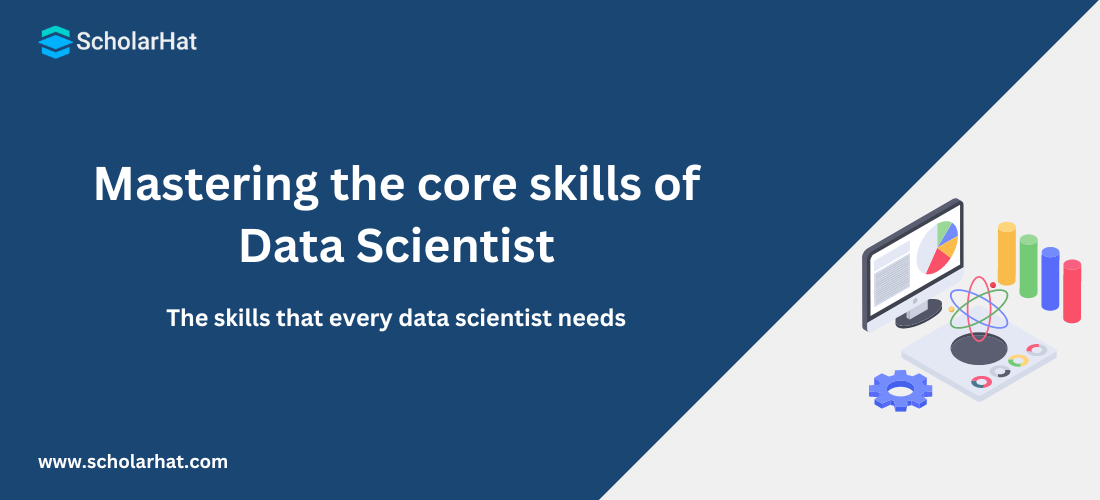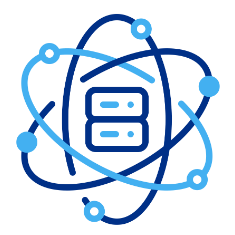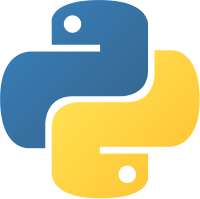18
AprSkills Required for Data Scientist
Skills Required for Data Scientist: An Overview
Hello there! Have you ever wondered what it takes to be a successful data scientist in India? It's not just about numbers and graphs. You'll need killer skills like programming acumen (Python, anyone? ), data analysis power, machine learning magic, and excellent interpersonal abilities. It's like solving riddles with data - seems interesting, doesn't it? Let's get started on the essential data science skills!
Who is a Data Scientist?
A data scientist is a professional who uses statistics, programming, and data analysis skills to derive useful insights from data. They are in charge of gathering, cleansing, and analyzing data to assist organizations in making better decisions. Data scientists are in high demand across industries such as technology, finance, healthcare, and retail.
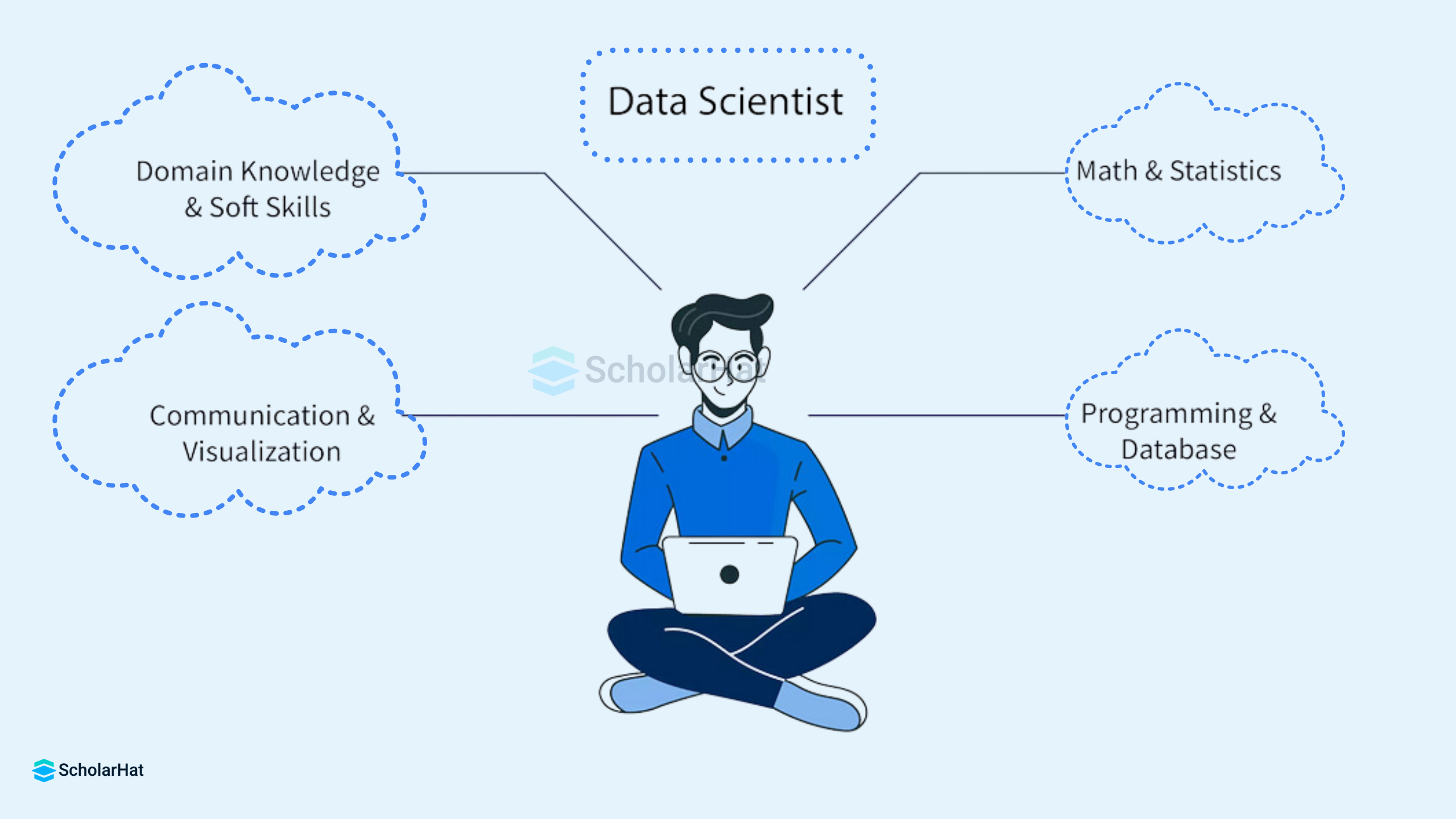
How to Become a Data Scientist?
Data scientists are in high demand as organizations across industries increasingly rely on data to drive decision-making. If you want to become a data scientist, here are some steps you can take:
- Earn a bachelor's degree in an appropriate field: While there is no such thing as a one-size-fits-all degree in data science, some typical areas of study include computer science, statistics, mathematics, and economics.
- Develop your programming abilities: Data scientists must be fluent in programming languages like Python, R, and SQL. These languages are used for data collection, cleaning, and analysis.
- Understand statistical methodologies: To analyze data, data scientists must understand and apply statistical methodologies. Probability, hypothesis testing, and regression analysis are examples of such concepts.
- Gain experience in machine learning: Data scientists utilize machine learning to develop prediction models, which is a valuable tool. Learn about machine learning methods like linear regression, logistic regression, and decision trees.
- Create a data science project portfolio: Building a portfolio of projects is the greatest method to demonstrate your data science talents. This could involve personal pursuits, schoolwork, or internships.
- Make connections with other data scientists: Networking is essential in any career, but it is especially critical for data scientists. Attend data science meetings and conferences to network with other industry professionals.
- Keep up with the newest data science developments: Since data science is a profession that is always changing, it is critical to stay current with the newest methods and trends. Read industry blogs, connect with data scientists on social media, and enroll in online classes.
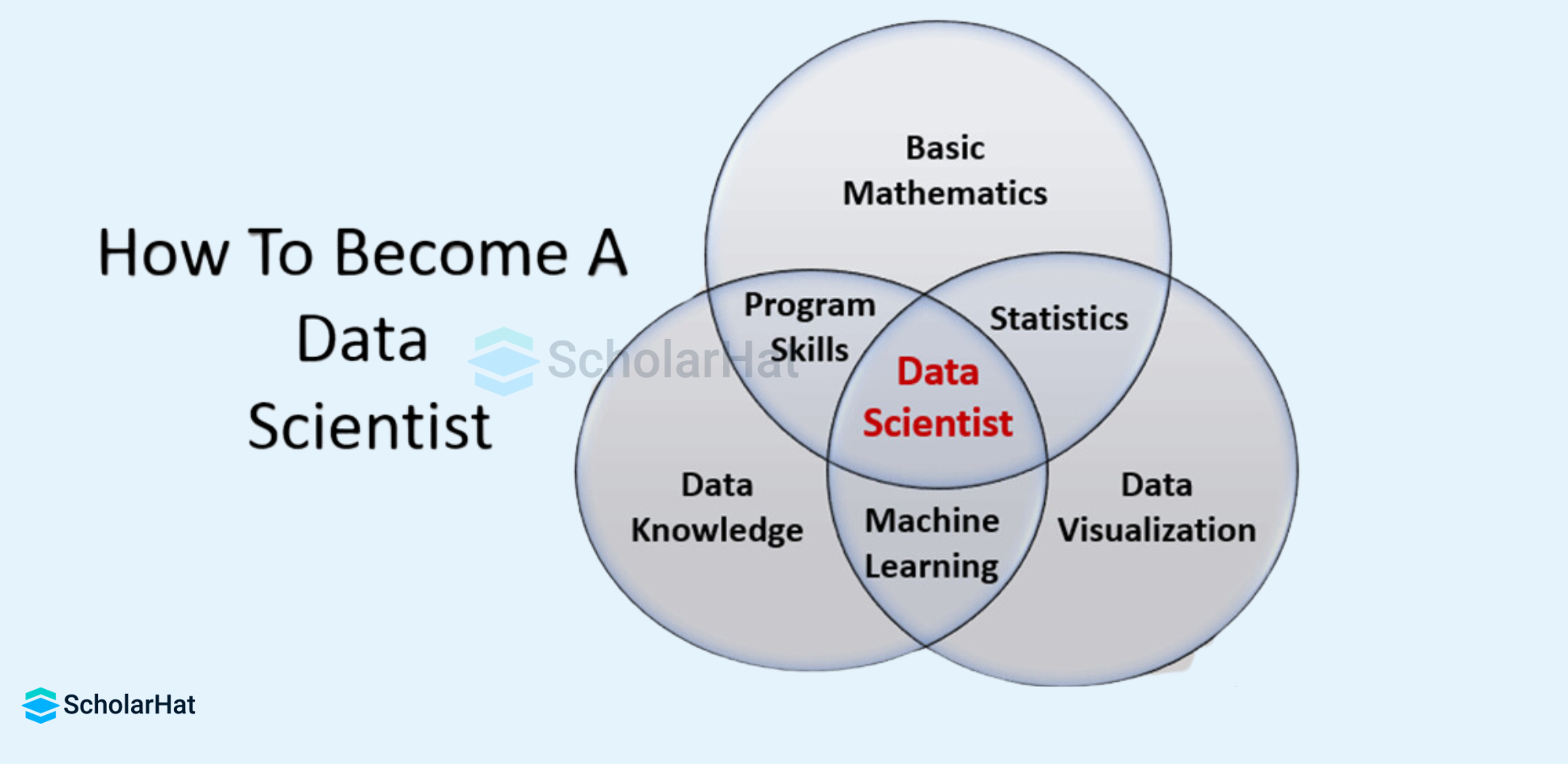
Read More - Data Science Interview Questions
Skills Required for Data Scientists
Data scientists are in high demand across a wide range of sectors. To effectively collect, analyze, and interpret data to drive business choices, they require a combination of technical and soft skills.
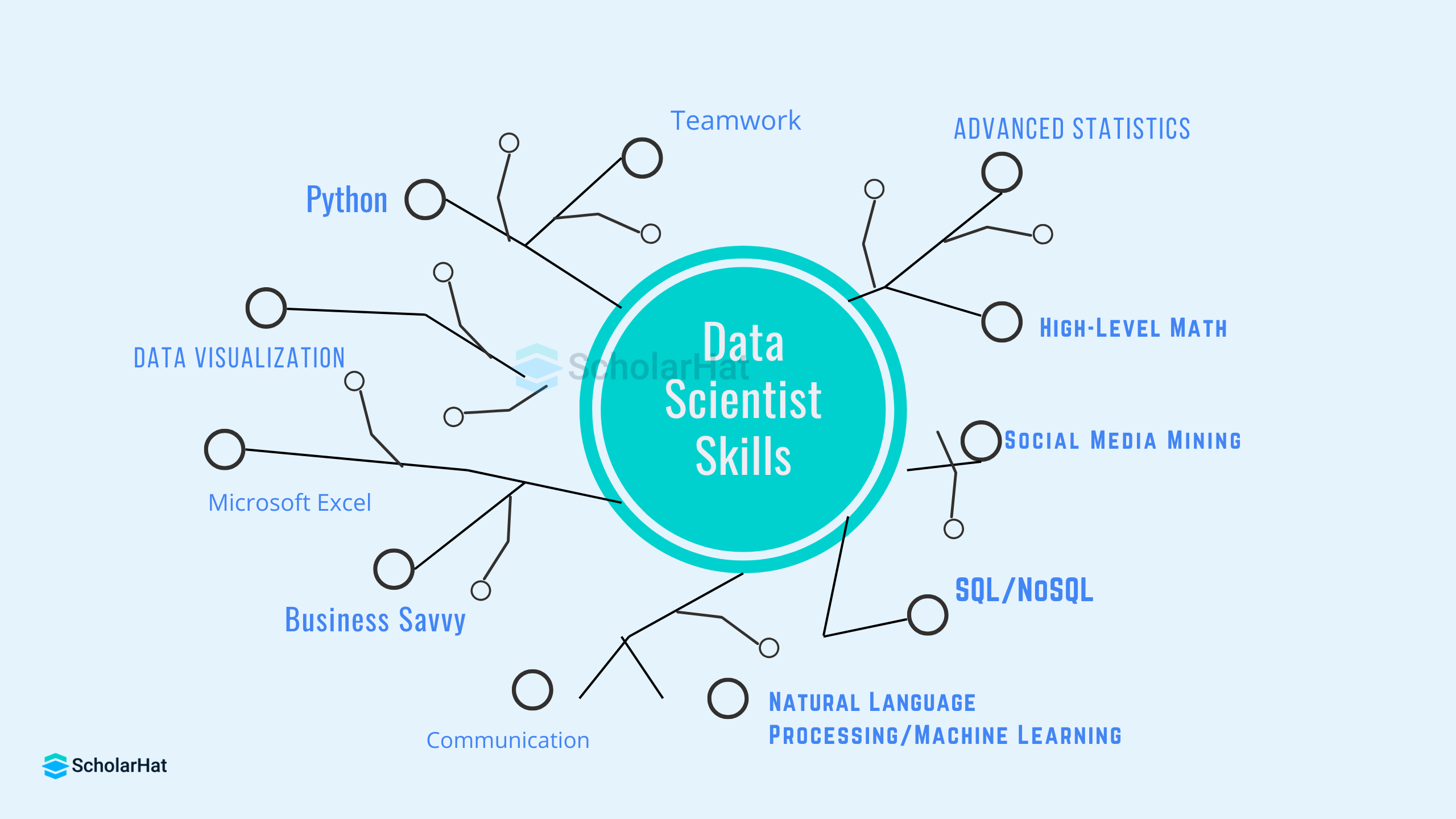
Here are some essential data scientist skills:
Technical Skills
- Programming Languages like Python, R, SQL
- Statistics and Probability
- Machine Learning and Deep Learning
- Data Visualization
Soft Skills
- Communication Skills
- Problem-Solving Skills
- Critical Thinking Skills
- Business Acumen
Technical Skills Required for Data Scientists
Data scientists must have a strong technical basis as well as the ability to communicate effectively and solve problems creatively to be successful in this industry.
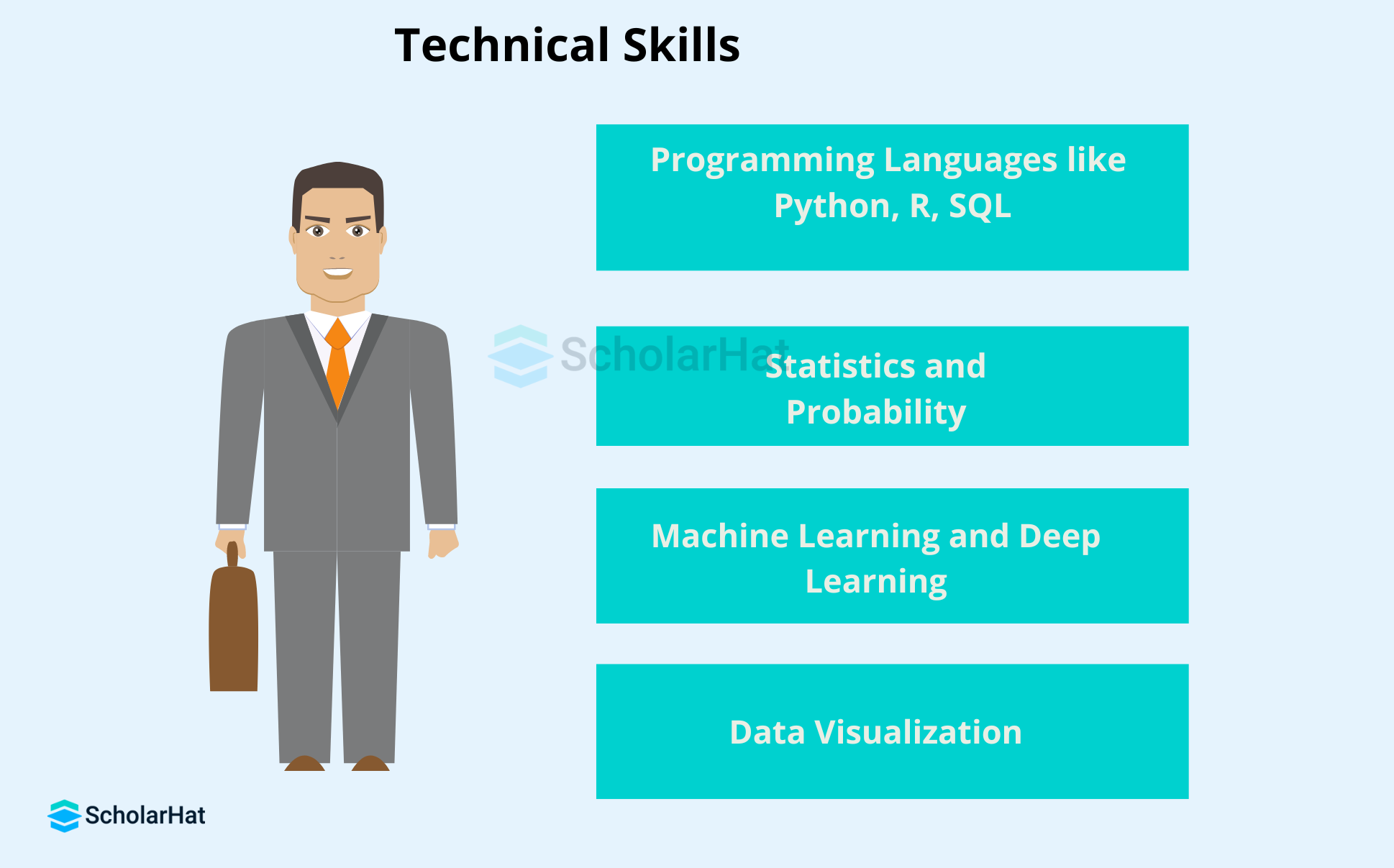
Here are 10 essential skills for data scientists:
- Programming: Data scientists must be familiar with at least one programming language, such as Python, R, or SQL. These languages are used for data collection, cleaning, and analysis.
- Statistics: Data scientists must know statistics since they are the foundation for data analysis. They should understand concepts like probability, hypothesis testing, and regression analysis.
- Machine learning: A subset of artificial intelligence that allows computers to learn from data without being explicitly programmed. Machine learning is used by data scientists to create models that can make predictions or choices.
- Data mining: The technique of obtaining knowledge from massive databases is known as data mining. Data mining techniques are used by data scientists to find patterns and trends in data.
- Data visualization: The process of creating charts, graphs, and other visual representations of data is known as data visualization. Data visualization is used by data scientists to explain their findings to others.
- Databases: Data scientists must be conversant with databases because this is where data is stored. They should be able to search databases for data for analysis.
- Cloud computing: Cloud computing is the supply of computing services over the Internet ("the cloud"), such as servers, storage, databases, networking, software, analytics, and intelligence. Cloud computing is used by data scientists to store and analyze big datasets.
- Version control: Version control is a technique for tracking changes to your code and data. Version control is used by data scientists to keep track of their work and cooperate with others.
- Unix: Unix is a popular operating system for data scientists. To manage files and directories, data scientists must be proficient with Unix commands.
- Git: Git is a mechanism for tracking code changes. Data scientists use Git to collaborate on projects and keep track of their progress.
Non-Technical Skills Required for Data Scientists
Data scientists require several non-technical skills in addition to technical skills to be successful in their careers.These skills include:
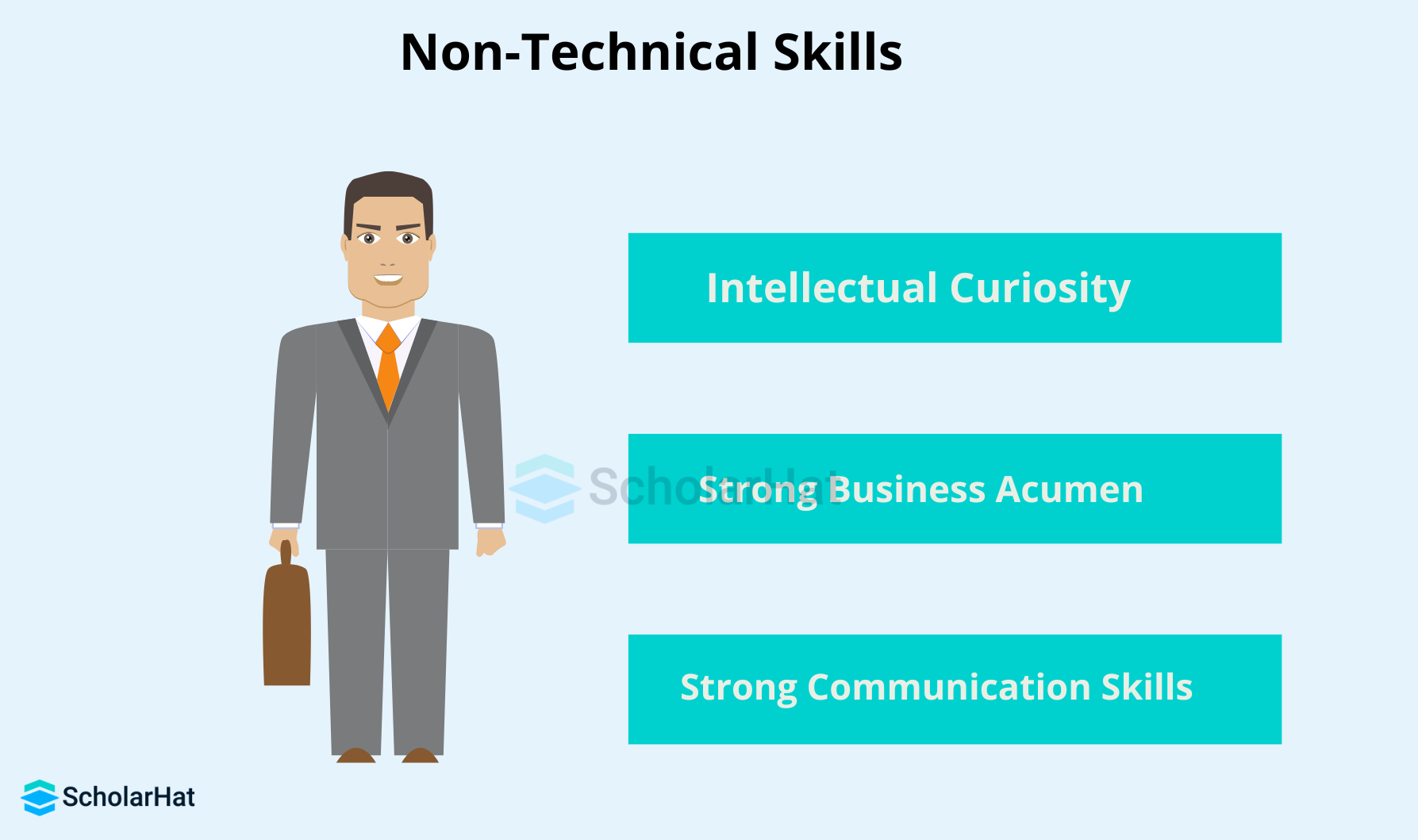
- Communication skills: Data scientists must be able to successfully convey their findings to both technical and non-technical audiences. This involves the ability to produce clear and succinct reports, conduct presentations, and explain complicated subjects understandably.
- Problem-solving abilities: Data scientists are frequently tasked with leveraging data to solve complex challenges. This necessitates the ability to think critically, detect trends, and devise creative solutions.
- Creativity: Data science is a creative discipline, and data scientists often need to create new and unique ways to analyze data. This necessitates that they be open to new ideas and eager to experiment with various techniques.
- Business acumen: To acquire and analyze data that is relevant to the business, data scientists must understand the business context in which they work. Understanding the company's goals, objectives, & challenges is part of this.
- Curiosity: Data scientists must be inquisitive and continually on the lookout for new information. This will assist them with staying current on the newest developments in data science and developing new and unique solutions.
- Adaptability: Data scientists must be able to adjust to new technology and methods as the sector is always changing. This needs them to be adaptable and eager to master new skills.
- Teamwork skills: Data scientists often work in groups with other data scientists, engineers, and business experts. This necessitates that they be able to properly collaborate and share their thoughts.
- Ethics: Data scientists must be mindful of the ethical consequences of their job. This involves ensuring that their job is fair, and neutral and does not hurt persons or society.
How To Develop (or Improve Upon) Essential Data Science Skills
Here's an easy way to improve your data science skills:
- Develop a Strong Foundation in Mathematics and Statistics
- Master Programming Languages
- Expand Your Understanding of Data Manipulation and Analysis
- Investigate Machine Learning and Deep Learning
- Practice Regularly with Hands-on Projects
- Communication and Storytelling
- Continuous Learning and Networking
- Specialise in a Domain of Interest
- Create a Portfolio of Projects
Summary
Technical abilities such as programming (Python, R, SQL), statistics, machine learning, and data visualization, and also soft skills like communication, problem-solving, and critical thinking, are required for success as a data scientist in India. You should also be curious, adaptive, and have solid business sense. These abilities can be obtained through schooling, online courses, projects, and networking.


